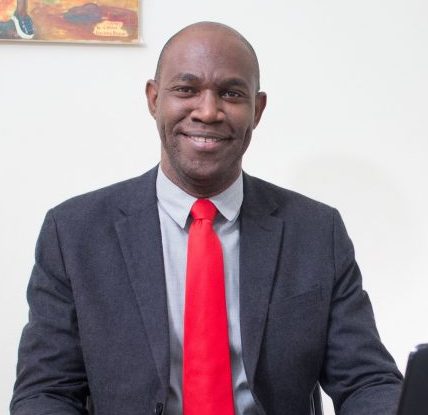
Trans-Friendly Health Services NeededCVC Executive Director advocates for policies that can accommodate trans persons seeking health services.
Executive Director of the Caribbean Vulnerable Communities Coalition (CVC), Ivan Cruickshank, wants the health sector to provide what he calls “trans-friendly” health services to transgender people in Jamaica.
“This means putting policies in place that can accommodate people who come in as trans and provide service to them. It would also mean the training of your healthcare providers to be able to provide trans-health services,” he said.
Speaking at a Gleaner Editors’ Forum at the newspaper’s offices on North Street in Kingston last Thursday, Cruickshank pointed out that many of the organisations working with vulnerable groups have partnered with civil-society bodies to train health workers in providing trans-health services.
“Trans-health service is a unique type of health service. So, you have to make sure that you have the policy framework that allows for the training of your medical professionals and that the service delivery points are able to deliver trans-friendly health services.”
Cruickshank revealed that there was a “particular toolkit that we have called Transit”, which provides a comprehensive package of services to transgender people, including hormone therapy.
He said that Transit would also help to ensure that persons who present themselves as transgender would be treated as such and not as males because of their physical appearances.
POLICE TREATMENT
Cruickshank also addressed the question of how transgenders should be treated by law enforcers when they commit an offense and are to be taken into custody.
He said that NGOs have worked with some police officers who have placed transgender people in a different cell.
“What they have done is that they have, pretty much, separated them, and even at some of our correctional facilities, they have separated them for their own protection and to ensure that they are addressing, in their own unique way, some of the issues that might arise.”
He estimated that the trans community represented about two percent of the Jamaican male population.
WHAT IS PANCAP?
PANCAP is a Caribbean regional partnership of governments, regional civil society organisations, regional institutions and organisations, bilateral and multilateral agencies and contributing donor partners established on 14 February 2001. PANCAP provides a structured and unified approach to the Caribbean’s response to the HIV epidemic, and coordinates the response through the Caribbean Regional Strategic Framework on HIV and AIDS to maximise efficient use of resources and increase impact, mobilise resources and build the capacity of partners.
What are the Global AIDS Strategy 2021–2026 targets and commitments?
If targets and commitments in the strategy are achieved:
- The number of people who newly acquire HIV will decrease from 1.7 million in 2019 to less than 370 000 by 2025
- The number of people dying from AIDS-related illnesses will decrease from 690 000 in 2019 to less than 250 000 in 2025.
- The goal of eliminating new HIV infections among children will see the number of new HIV infections drop from 150,000 in 2019 to less than 22,000 in 2025.
What are the 95-95-95 Targets for ending AIDS?
- 95% of People Living with HIV know their HIV status;
- 95% of people who know their status on treatment; and
- 95% of people on treatment with suppressed viral loads.
HELPFUL LINKS:
Global AIDS Strategy 2021–2026, End Inequalities, End AIDS
https://pancap.org/pancap-documents/global-aids-strategy-2021-2026-end-inequalities-end-aids/
Caribbean Regional Strategic Framework on HIV and AIDS (CRSF) 2019-2025
https://pancap.org/pancap-documents/caribbean-regional-strategic-framework-2019-2025/
